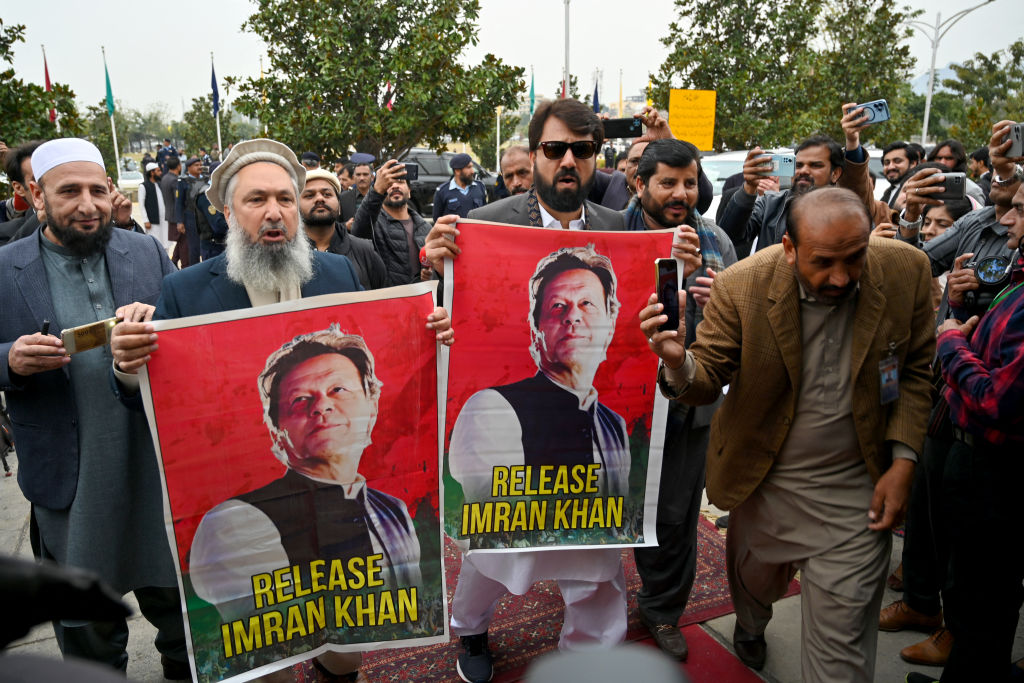IAN BREMMER

Pakistan’s worst-kept secret is that its military dominates its government. Whether to safeguard the nation against chaos or to protect their own privileged access to power and wealth, its generals have manipulated the country’s politics for decades. Pakistan’s voters, like voters elsewhere, want change. February’s ugly election fiasco shows that it’s only getting harder for the army to prevent political disrupters from upending their plans but, unfortunately for Pakistan’s future, they have yet again managed to override public demand for a new direction.
A brief recap: The generals and popular leader Imran Khan decided some time ago they could no longer trust one another. The army then removed Khan from his post as Prime Minister and put him in jail, as it has done to many past Prime Ministers who refused to respect their dominance. He now faces more than 150 criminal charges, all of which he denies.
When the brass refused to let him contest February’s national elections, even from prison, aides in Khan’s Pakistan Tehreek-e-Insaf (PTI) party created AI-generated Khan speeches that were then broadcast around Pakistan. In a nation where 40% of voters are illiterate, army-dominated courts ruled that ballots could not include the symbol of Khan’s party, a cricket bat to reference Khan’s professional sporting prowess, but the party vowed to press ahead. When the generals refused to allow PTI members to appear on ballots, many ran as independents.
Both the army and a former Prime Minister, the exiled-then-rehabilitated Nawaz Sharif, were confident that destroying Khan’s candidacy would assure a victory for Sharif. It did not. Even after manipulating courts and the media, stuffing ballot boxes, and turning off mobile phone service and social media in areas where Khan voters were setting their get-out-the-vote plans, the nation’s self-appointed overlords could not stop voters from shocking Pakistan and the world by handing victory to the independents who stood for Imran Khan’s PTI. They didn’t win a majority, but they did win more seats than any single party.
It took the army and its political subordinates three weeks to untangle this mess and find a way to keep Khan’s party out of power. On March 4, Pakistan’s newly formed Parliament announced that Shehbaz Sharif—Nawaz’s brother and the interim Prime Minister since the army grabbed power again last August—will again lead a coalition government. All in the name of “stability.”
It’s reasonable to wonder why Sharif, or anyone else, would want the job. Pakistan ranks 161st out of 191 countries in the U.N.’s Human Development Index. Its economic prospects remain poor. About 40% of Pakistan’s people live in poverty, and inflation stands at about 30%. Power outages are a fact of daily life. To pay its foreign debt to avoid default, Pakistan’s government must come up with more than $20 billion. Its current reserves have dwindled to less than $10 billion.
The country is increasingly isolated. China and Saudi Arabia, traditional investors in Pakistan, increasingly see the country as a bad commercial bet. Traditional security partners in the U.S. are less interested, particularly since the U.S. withdrawal from neighboring Afghanistan. And though Khan has vowed that PTI lawmakers will sit in opposition, the party’s followers have already demonstrated an ability and willingness to generate major trouble in the streets of Pakistan’s largest cities.
Worse still, the army establishment has shown Pakistan’s voters that their country’s democracy cannot create the change they need. That bodes ill for the nation and all who would lead it, whether they’re elected or not.
No comments:
Post a Comment